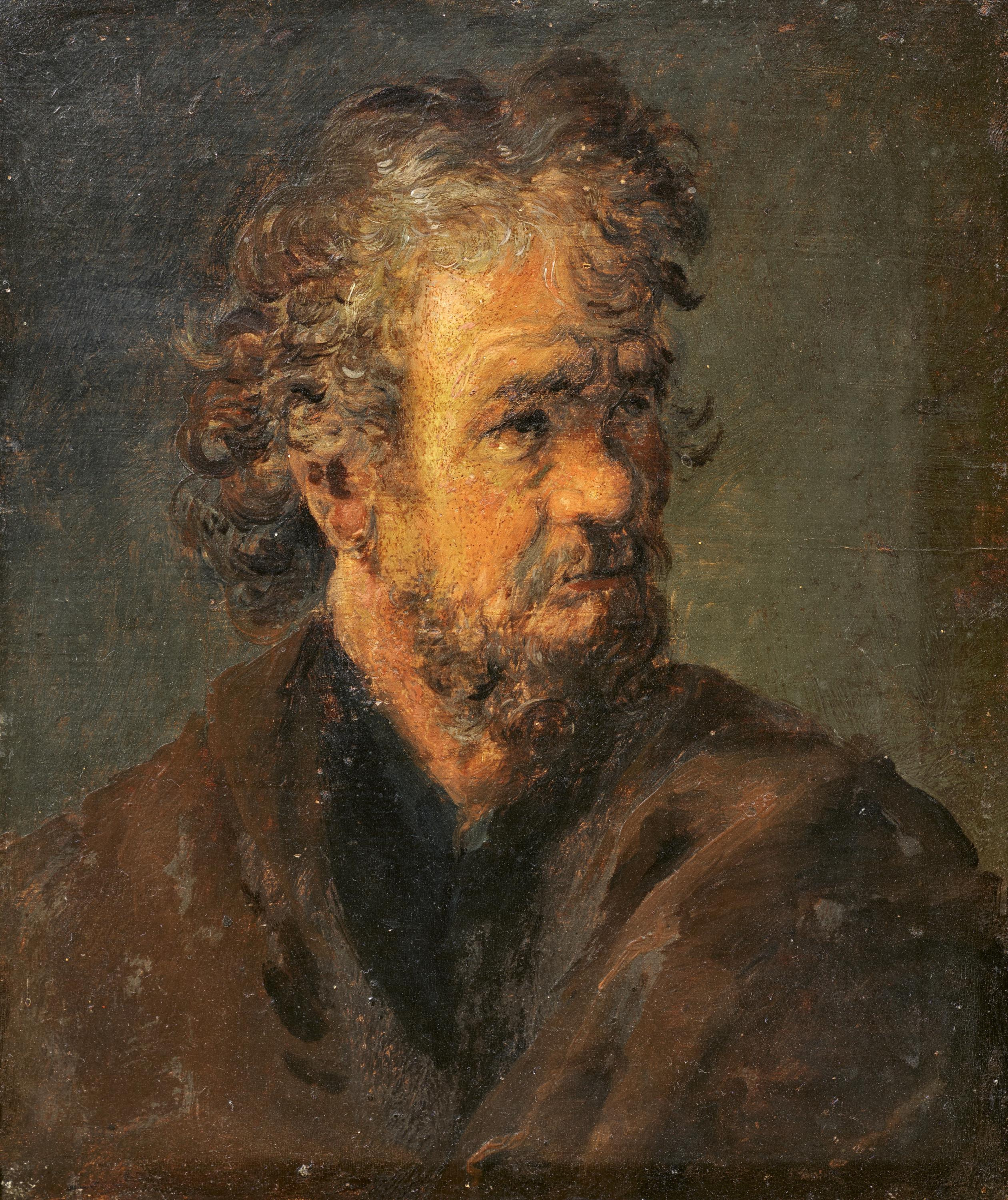REMBRANDT VAN RIJN
1606 Leiden - 1669 Amsterdam
Workshop / School
Title: Half-length Portrait of a Bearded Man.
So-called 'Tronie'.
.
Technique: Oil on wood.
Mounting: Traces of a former parquetry.
Measurement: 20,5 x 17,3cm.
Frame: Framed.
Material analysis:
Dendrochronological examination of the wood by Prof. Dr Peter Klein, University of Hamburg, October 2018: felling date of the Baltic oak in the years around 1639-51. Including the necessary drying time of the wood, a processing time of the panel from 1647 is plausible.
Literature:
E. van de Wetering: Rembrandts paintings revisited. Dordrecht 2017, p. 58, ill. 16;
A. Bredius: Rembrandt Schilderijen. 1935. No. 241.
Provenance:
Private ownership, Germany;
Auction Van Ham Cologne, 15/11/2018, lot 1128 (as workshop of Rembrandt van Rijn).
A tronie (or tronje) is a primarily small-format painting that artists initially used to practise and build up a stock of models, a repertoire from which they could draw. Tronies could have human figures or unique forms of character expression as their subject, but they could also take the form of depictions of plants or animals. As a student works in a workshop, human tronies often follow depictions of people from the master's paintings.
In the 17th century, this pictorial form took on a life of its own and became a more affordable commodity in the flourishing art market.
Ernst van de Wetering discussed the significance of such tronies within Rembrandt's oeuvre in his book 'Rembrandt's Paintings Revisited', published in 2017.
The work presented here belongs to a group of five currently known tronies of a bearded man, which probably originate from Rembrandt's workshop. One work (Rembrandt School, c. 1645) is now in the National Gallery in Oslo; another version (copy after Rembrandt, painted 1655-1669) is in the Philadelphia Museum of Art. A third related panel (Rembrandt school, painted around 1643 - 1645) can be found in the Leiden Collection in New York, and another, which was previously attributed to Rembrandt, is part of the holdings of the National Museum for Western Art, Matsukata Collection, in Tokyo.
A bearded man is prominent in the painting 'Salome with the Head of John the Baptist' (Rijksmuseum Amsterdam, now in the Rembrandt circle), which has very similar facial features to this group of tronies.
Whether research will ever be able to identify the author of our small panel is uncertain. However, the quality of the work is still tangible even after almost 380 years. It is a character head, a 'type' from the people, whose face is characterised by deep wrinkles. The prominent, bulbous nose almost distracts from the good-natured and gentle eyes. The mouth shines out from the shaggy beard with a full lower lip, which is drawn in great detail but is lost in the brown colour of the robe. The man's curly, still-full hair is different: silver strands flash at the crown of his head, which is still full of brown curls. The painter has added them with a quick hand as the last layer of paint. The three-quarter profile is illuminated from the left by a warm light, emphasising the 'landscape' of this face against the monochrome dark background. It is a man on the threshold of old age who has stood the test of time and opens the door to Rembrandt's studio a crack.



